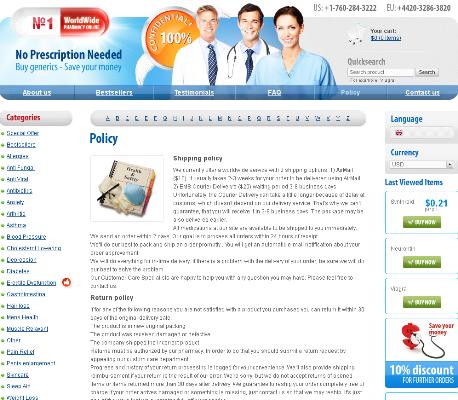Biaxin for Respiratory Infections: Effectiveness
What Is Biaxin and How It Works
Biaxin, known generically as clarithromycin, is an antibiotic belonging to the macrolide class. It's specifically designed to combat bacterial infections by inhibiting the bacterial ribosome, thereby preventing protein synthesis which is crucial for bacterial growth and replication. This mechanism makes Biaxin highly effective in stopping the proliferation of bacteria responsible for respiratory tract infections.
| Brand Name | Biaxin |
|---|---|
| Generic Name | Clarithromycin |
| Drug Class | Macrolide Antibiotics |
| Action | Inhibits bacterial protein synthesis |
Suitable for both adults and children, Biaxin is often prescribed to treat conditions like bronchitis, pneumonia, and sinusitis. Its broad-spectrum activity covers a wide range of respiratory pathogens, making it a favored choice among healthcare providers. Studies have shown that clarithromycin achieves high concentrations in respiratory tissues, enhancing its effectiveness against persistent bacterial infections.
Common Respiratory Infections Treated by Biaxin

Biaxin, known by its generic name clarithromycin, is widely prescribed for a range of respiratory infections due to its powerful antibacterial properties. It effectively targets and diminishes bacteria responsible for conditions such as bronchitis, sinusitis, and pneumonia. Many patients have noted significantly faster recovery times with Biaxin, particularly in persistent cases where other medications have failed. Studies confirm its efficacy in reducing symptoms like coughing and congestion while preventing the infection from recurring. Physicians often favour it because of its broad-spectrum capabilities, combating various bacterial strains. Despite its potent benefits, the antibiotic may occasionally cause side effects, making it necessary to consult healthcare providers before use.
Clinical Effectiveness of Biaxin for Infections
The clinical effectiveness of Biaxin in treating respiratory infections has been a subject of extensive study, and results are promising. Biaxin works by inhibiting bacterial protein synthesis, thus eradicating the bacteria causing the infection. Studies have shown that this antibiotic can treat a wide variety of bacterial respiratory infections, including bronchitis and pneumonia, with a high success rate.
Patients typically notice significant improvements in symptoms within a few days of starting treatment. The quick resolution of symptoms considerably enhances their quality of life, making Biaxin a reliable choice for both acute and chronic respiratory conditions.
Moreover, what sets Biaxin apart is its proven efficacy in cases where other antibiotics have failed. Clinical trials have repeatedly highlighted its robust action against resistant strains, making it an indispensable weapon in the medical arsenal. Therefore, physicians frequently recommend Biaxin due to its reliability and potent action against stubborn infections.
Comparing Biaxin to Other Antibiotics

When comparing Biaxin to other antibiotics, it stands out for its broad-spectrum antibacterial activity, making it effective against a variety of respiratory pathogens. For instance, in treating bacterial bronchitis, studies have shown that Biaxin is as efective as amoxicillin but often better tolerated. Furthermore, unlike some antibiotics that must be taken multiple times a day, Biaxin's twice-daily dosage offers a more convenient regimen. That said, while Biaxin can treat a wide range of infections, certain bacteria may show resistance, wich necessitates physician discretion in choosing the appropriate treatment.
Potential Side Effects and Precautions
When considering Biaxin for respiratory infections, it's essential to be aware of potential side effects and take proper precautions. Common side effects include gastrointestinal issues such as nausea, vomiting, and diarrhea. More severe but less frequent reactions might involve liver problems or allergic responses like rash and itching. It's crucial to consult your healthcare provider if any severe symptoms occur.
| Side Effect | Description |
|---|---|
| Nausea | Feeling of sickness with an inclination to vomit. |
| Diarrhea | Frequent, loose, or watery bowel movements. |
| Rash | Red, itchy, and often swollen skin. |
Special precautions must be taken for individuals with liver conditions or those currently taking other medications, as interactions could occur. Always inform your doctor about your medical history to avoid complications. Avoiding alcohol during the treatment period is also strongly recomend, as it can exacerbate side effects. Patients with a history of antibiotic allergies should inquire alternative treatment options to prevent any adverse health impacts.
Real-life Patient Experiences and Reviews
When looking at real-life experiences with Biaxin, many patients report noticeable improvements in their respiratory infections within a few days of commencing treatment. For instance, John, a 34-year-old software engineer, shared that his chronic bronchitis symptoms began to subside after taking Biaxin for just three days. Another account from Maria, a teacher, who had struggled with persistent sinusitis, highlights that her breathing and overall health significantly improved untill she completed the full course of the antibiotic.
However, not all experiences are unequivocally positive. Some patients, like Andrea, who was dealing with a severe bout of pneumonia, reported side effects such as nausea and mild abdominal pain, although she ultimately found the drug effective. The reviews collectively emphasize the importance of following the prescribed dosage and being mindful of potential side effects while undergoing treatment. Here are more details from reliable sources about Biaxin: NCBI and Drugs.com.

